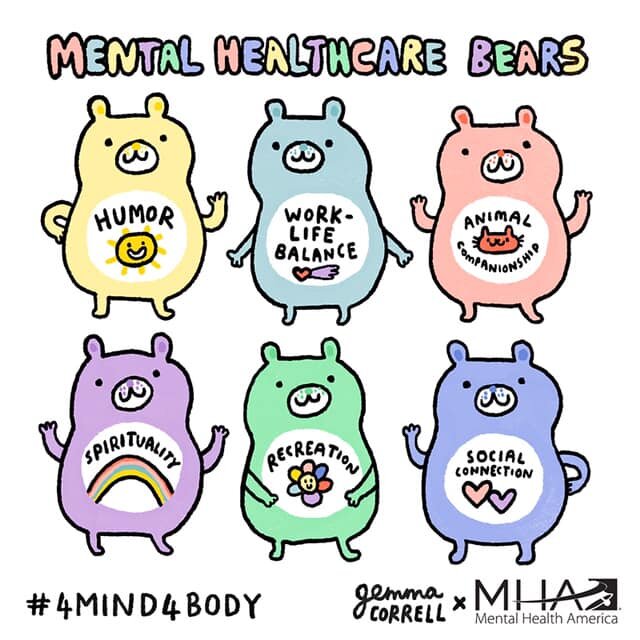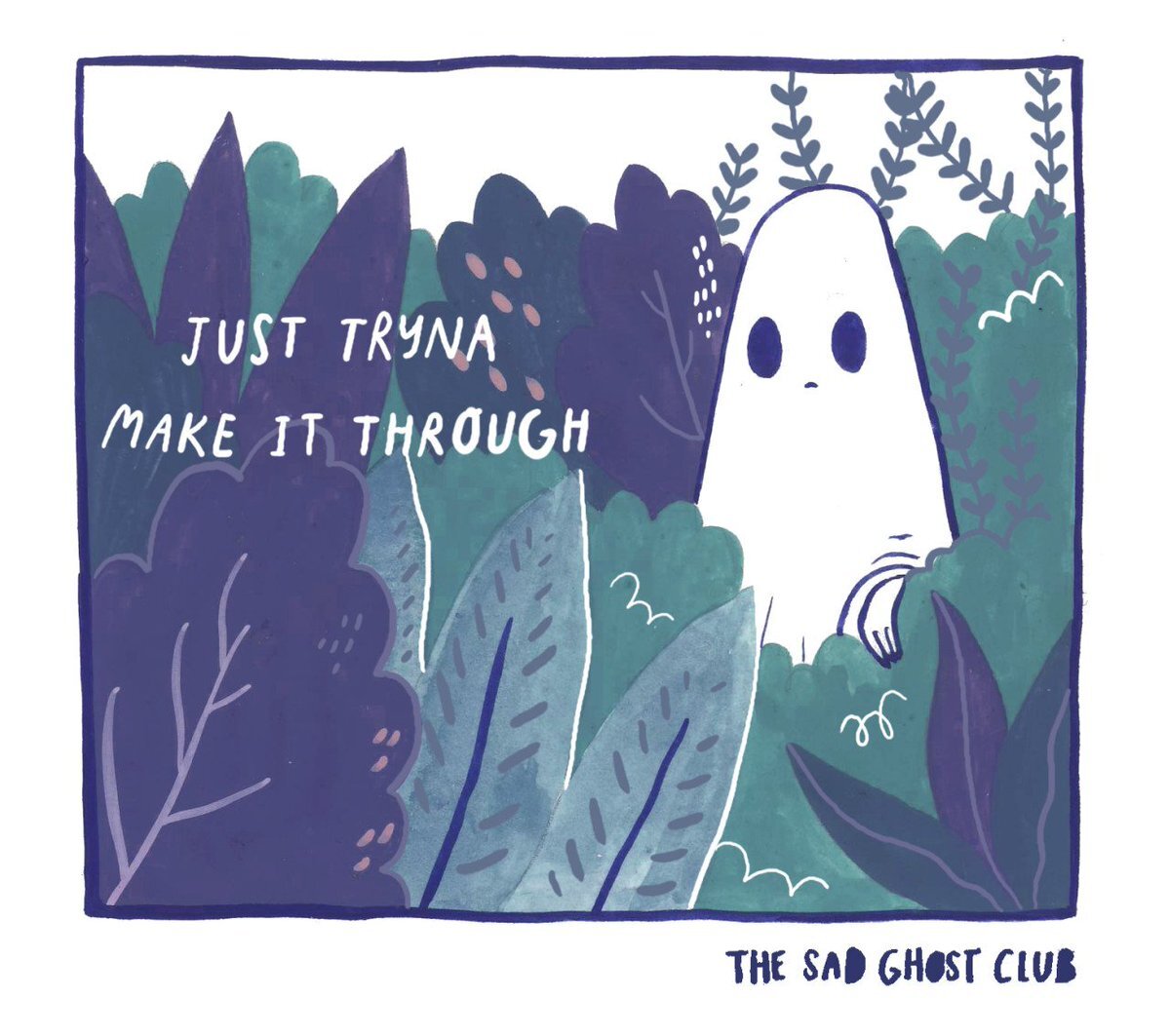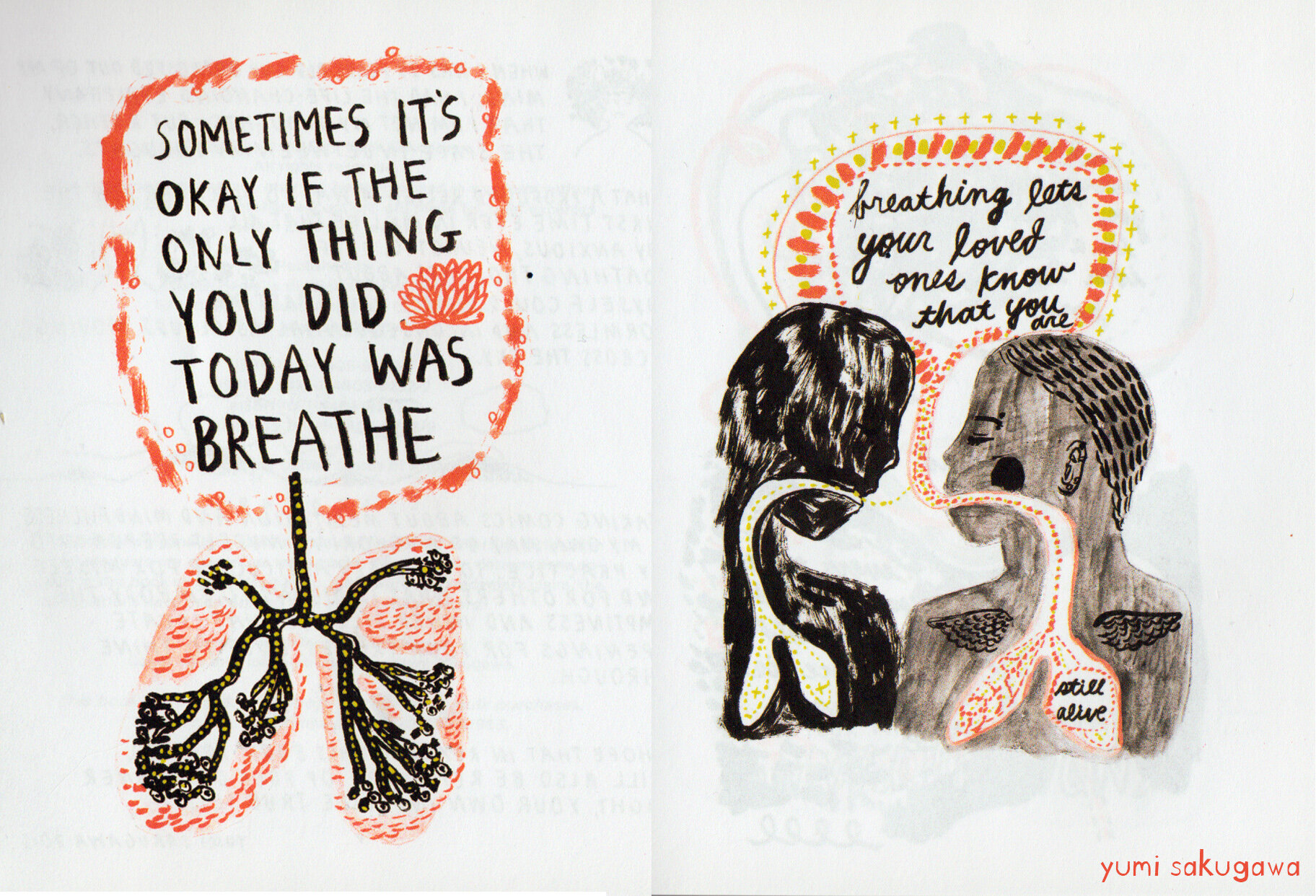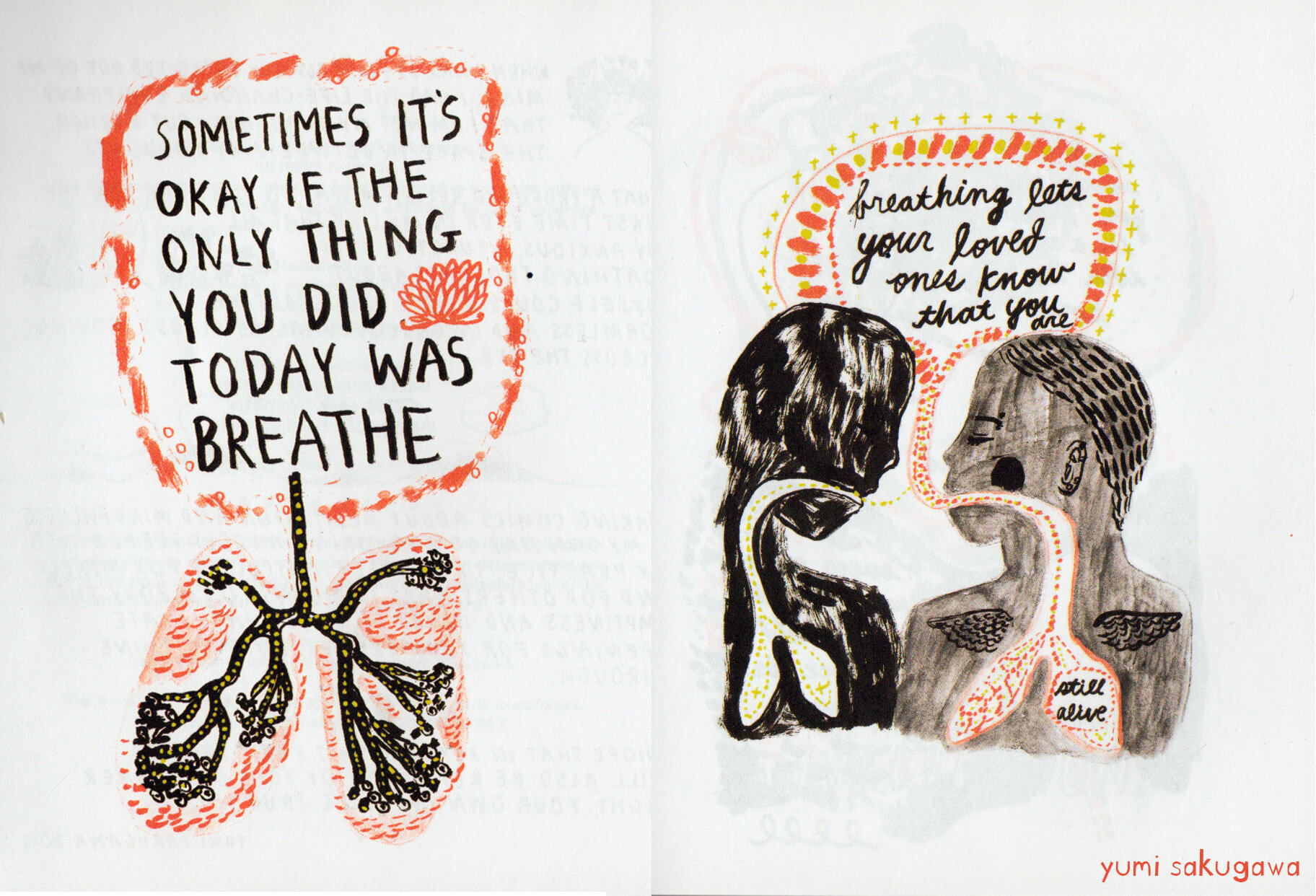Mental Health Awareness Month - how yoga can help; and when it can't

The month of May is Mental Health Awareness Month in the US, and next week (13th-19th May) is the annual Mental Health Awareness Week in the UK, as hosted by the Mental Health Foundation since 2001.
We all have Mental Health
The dialogue on Mental Health is growing in support and engagement all the time and thank goodness - not only is anxiety and depression a growing problem worldwide due to the ever more hectic pace of life and the pressure of comparison we all feel due to traditional and social media - never before have we had so many images of perfection around, never have we been just so well informed of the intimate details of what people we hardly know are up to (or rather, of each other's highlight reels - cause who cares to hear about our bad days, detail of our struggles?)
Not only is the cacophony of notifications increasingly draining away our attention, but no one is immune to this.
To leave aside demonising social media for a moment - Mental Health is relevant to everyone, as more and more people are acknowledging. Yet there is still a stigma and shame overshadowing conversations about mental wellbeing - for some reason admitting you are struggling feels like admitting defeat. But, you would never feel guilty for going to the doctor with a broken leg..
This is how I like to talk about it - if you think about your physical health, we are all on a constantly fluctuating scale. One day your head hurts, another day you have an upset tummy, on the third day you cut your finger, one day you have to miss work because of a virus, and unfortunately the scale goes all the way to serious afflictions that can put your very life in danger.
The exact same is true of your mental state. On one day you feel invincible and joyful, on another you are a bit irritable and tasks are less appealing - on another day you can't cope with the world at all.
Now this is not to say that we are all in the same boat - because we can't compare a runny nose with cancer nor can we equate a bad mood with serious mental illness - but this is simply a reminder that we are all human, we are all susceptible to problems of mind or body, and should never be ashamed of admitting that something isn't right.

Yoga can help
More and more, mental heath charities, support organisations and even the NHS are recommending yoga and other mindfulness practices to help relieve mental health issues. And this is awesome! So - like any good yoga and mental health article, this piece should list some of the benefits, hey - so here:
- calming the nervous system - the mindful linking of breath, attention and movement encourages the parasympathetic nervous response of the autonomic nervous system, which means 'rest-or-digest' mode rather than 'fight-or-flight'. Biologically speaking, then, we slow the heart rate, we reduce blood pressure and inflammation, improve the resilience of the nervous system and all of these allow for better functioning of the body in general, increasing a sense of wellbeing, lowering cortisol (stress hormone) levels, increasing serotonin, and gradually slowing the incessant stream of thoughts.
- being in the moment - even the physical practice of asana is a mindfulness practice as we focus so closely on the breath, concentrate our attention onto the body and the often weird shapes we're doing (try balancing on one leg and worrying about your to-do list at the same time. not gonna happen, my friend) . Anxiety and depression in particular are 'big picture' stress responses - when we focus on the here and now, we can hold our overarching problems a little at arm's length, at least until we slow our breath down and our brain works a little better to sort things out.
- working with the subtle body - yoga builds our awareness of our mind, our emotions, and our body, and also of how all of these things are connected. Notice when you are feeling joyful or dejected, you can feel it in your physical body, in a particular place and as a particular energetic force. Excitement often is a lift of bubbly light at the top of the chest, depression a sinking feeling in the belly or across the shoulders. Subtle anatomy explains these sensations by describing the various energetic seats in the body - it will be no surprise that the heart is the centre of compassion, the navel the source of confidence and will. But also, the base of the spine is our centre of groundedness and safety, the hips emotional storecupboards, the lungs the seat of grief, the heart the abode of joy. In yoga, we can use posture and breath to work with these centres, to release and activate our emotions and our powers and become more in tune with what we are going through.
- body image - this particular point is the theme of the Mental Health Foundation's initiative next week. 30% of people describe feeling overwhelmed by stress over body image, and no surprise. I already talked about the overabundance of artificially perfected imagery, add to that the massive food and drink industry and the fitness and wellbeing business always pushing this or that on us. There are more and more ways to feel Not Good Enough. Food and exercise have such a massive effect on the way we feel and live and they can unfortunately form part of a toxic toolkit of self-punishment, restriction, and grasping at control in a chaotic world. I have gone through this myself, and I'm sad to say that it's a struggle that I haven't completely overcome, but in this ongoing challenge, yoga is my ultimate touchstone. At first it was a way of refocusing my attention from how my body looks to what it can do, and how it can feel. Magic! And yes, I've got stronger, but more than that I feel how temporary the body is, and I've managed through Yoga to catch a glimpse of something deeper, radiant, and eternal.
Maybe Yoga Can't help?
Having listed all the amazing benefits and sold you yoga to the max, I now have to get a little real.
I'm a fixer. Whenever anyone tells me about a problem, my brain immediately goes OK, Right! Let's seee... whether it's a yoga posture for improved digestion, pranayama for lowering blood pressure, or an ayurvedic root for grounding (let's hear it for shatavari my friends, <3)
Obviously there are benefits to this - but in real life it can not always be a helpful response, in particular if the problem is something that is out of your hands, like illness or disbalance - and especially if the problem is one of a racing, anxious, and bullying mind.
Unfortunately this article (as I'm sure you've already realised) is coming from my own personal experience of mental and emotional struggle.
Now, the way it goes in my head is this: but you do yoga every day! asana, pranayama, study, meditation, journalling.. my vegan diet is ayurvedically balanced, almost completely local and organic, jeeez. Why, then, do I still feel bad?
That's when I start to feel like even more of a failure.
(See how I said we shouldn't judge people for suffering mental struggles? That's easier to do with others than yourself...)
I start to think - how can it be, that my beloved yoga isn't solving everything?
But then I realise that it's not that yoga isn't solving things - it's the fact that I'm applying the same neurotic mindset to my yoga as I am everything else. The yoga technology, like anything else, is a tool - a container for our humanity, complete with the rollercoaster of all of our frailties.
Thankfully the system has made provision for this with arguably the most important practice (and one which I have clearly neglected) - vairagya - letting go.
OK Yoga does help actually
Vairagya - dispassion, is the practice of releasing your grip on the results of your practice, of stepping back, and instead of pushing and willing things to change, you just let it be. Let yourself be.
The times when my anxiety and fear have loosened on me and seemed to step back are exactly when I have stopped fighting them. When I realise that it's OK to not feel OK, when I stop trying to find the answer, and instead rest in not knowing, then my heart starts to open.
It may seem counter-intuitive, but equally, you wouldn't continue to work, to rush around, if you were sick with the flu - you have to give your body space to rest and recover.
Your mind needs the same - space, peace, ahimsa (compassion). The more you beat yourself up for feeling bad and not being strong enough, the less likely you are to feel resilient again.
So please, (and I'm mostly talking to myself here), give yourself a break. Practice ahimsa and vairagya and some self-love - feel your feelings and know that the people around you are just fighting the good fight just like you.
I WISH YOU ALL PEACE DURING THIS MENTAL HEALTH AWARENESS MONTH

NEED HELP? just talk to someone, a friend, your GP, even your boss - I'm sure you will be surprised at how much understanding and compassion you will meet. Otherwise:
breathingspace.scot
www.wellbeing-glasgow.org.uk
www.mentalhealth.org.uk

